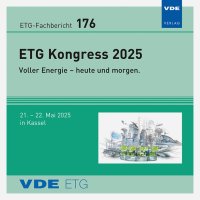Thermal energy transmission in Gevensleben – a feasibility study of the sector coupling between wind energy and district heating network
Conference: ETG Kongress 2025 - Voller Energie – heute und morgen.
05/21/2025 at Kassel, Germany
Proceedings: ETG-Fb. 176: ETG Kongress 2025
Pages: 6Language: englishTyp: PDF
Authors:
Langemann, Robin; Dreier, Ann Kathrin; Gottsmann, Julia; Engel, Bernd
Abstract:
In accordance with the German act for heat planning and heating network decarbonisation, the German government has set the goal of implementing the municipal heat planning to fulfil the climate targets until 2045. Communities with less than 100,000 residents need to present their decarbonisation-strategy for the thermal supply until 2028. [1] To demonstrate the challenges in building a district heating network in rural areas (e.g. integration of renewable energy production, profitability, project in its entirety, competitive heat price) this paper considers exemplary the township Gevensleben in Lower Saxony. The village Gevensleben offers favourable conditions for electric based heat provisioning because of the proximity to a windfarm, hence a sector coupling with power-to-heat is intended. The heat provisioning should be realised by heat pumps and the implementation of a district heating network. Furthermore, the technology of agrothermal energy could be a possible way of dual-use of farmland for agriculture and environmental heat procurement to avoid conflicts in land use. Moreover, the already existing wood chip boiler with local purchased wood supports the heat pump operation and lowers the heat costs.


